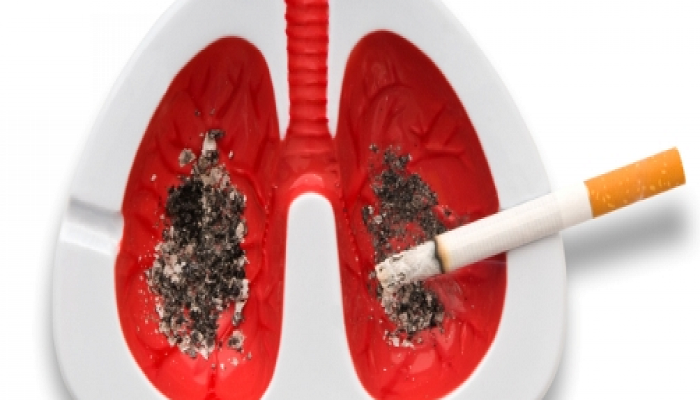And what if you stop breathing you can not take more than a few seconds without doing it? If breathing is so important, it is also essential to know our lung health. To do this, and in order to ensure that health is with you throughout 2017, a list of new habits to put into practice in this new year that has just begun is proposed below.
1. To lead an active life

Surely you have heard that you should avoid being sedentary and that it is recommended to do about 30 minutes of daily exercise. Respiratory patients, due to dyspnea (feeling of suffocation) that they feel and that, many times, worsens with exercise, think that this practice is counterproductive for them, but nothing further from reality. Thanks to exercise they will be better able to use the oxygen they get when they breathe, they will have less sensation of shortness of breath, they will fatigue less and they will learn to control the symptoms. Thanks to this practice, you will soon notice the benefits in your body and mind.

But to improve fitness it is not necessary to join the gym. Recent studies have shown that going for a walk is a simple and healthy follow-on habit that contributes to improving our health. For this, we recommend looking for a nice and close place where you can carry out this practice on a daily basis. And remember that you have to walk in such a way that you can talk while you walk.
2. No smoking

How can we not tell you that tobacco is harmful to your health if you produce 53,000 deaths a year? Inhaling tobacco smoke, both actively and passively, causes the respiratory system to become inflamed and the airways narrow and “plugged” by the secretions produced, preventing the air from passing easily. In addition, the alveoli are destroyed, so that less oxygen passes into the blood, the feeling of suffocation increases and, therefore, any activity causes fatigue.
Therefore, quitting smoking is one of the essential purposes for this 2017. In addition, tobacco is a major cause of diseases such as COPD or lung cancer.

How many times have you heard that prevention is better than cure? Well in lung health too, especially since the vast majority of these diseases can be prevented.
To prevent acute respiratory diseases, it is essential to practice the following habits:
3. Introduce new ways to prevent diseases

• When coughing or sneezing, cover your mouth. When coughing or sneezing, many droplets of saliva that may be infected by bacteria or viruses are expelled. These particles can infect others by inhaling them or touching objects in which they have been deposited. To avoid this, ALWAYS have to be covered with your arm.

• Handwashing. Every day, when performing usual activities such as going to the bathroom or covering with hands when sneezing or coughing, comes in contact with viruses and bacteria that are harmful to health. But not only is it possible to fall ill, but diseases can spread because every day the hands are in contact with people, objects or surfaces. To prevent it, wash your hands after going to the bathroom, before eating, after traveling by public transport, before touching a baby or elderly person or after being in contact with a sick person. Respiratory diseases that can be spread through the hands are the flu, the common cold, and whooping cough.
• Get vaccinated. Vaccinating is one of the most important measures to prevent these diseases and prevent their spread. Ask your GP if you are in any of the different risk groups for each disease and feel free to do so if recommended. If you already have a chronic respiratory disease, it is essential that you get a vaccination, do not stop.
To prevent chronic respiratory diseases is vital:
• Do not smoke or be in places where you smoke.
• Do not expose to irritants such as varnishes, lacquers … without adequate protection.
• Avoid contaminated sites. Do not use biomass fuels for cooking,

heating . The smoke generated by the burning of materials such as wood or charcoal contains particles harmful to the respiratory system.
Tags: healthy goal



Leave a Reply